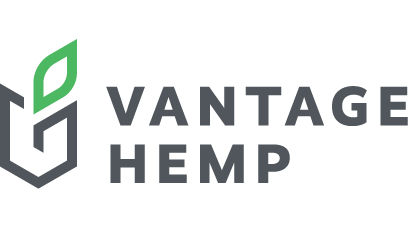
01 Jul Vantage Anticipates International CBD Markets
Differentiating High-Quality CBD Oil
There are literally thousands of CBD products being sold around the world, so how do we differentiate between what is a quality product and what isn’t? CBD has become an integral supplement for people to take to maintain and increase their health and wellness. However, it’s currently an unregulated market in an extremely fast-growing industry that doesn’t look like it’s slowing down anytime soon. With the growth in popularity of CBD, new brands and merchants are coming out claiming that their product is superior by making promises that it’s of the highest quality. So how do we, as consumers, know if it’s high quality or not?
Cannabidiol, or CBD, is an extract of the cannabis plant. Although present in psychoactive cannabis (“marijuana”), most CBD oil is extracted from agricultural hemp. CBD offers many of the health benefits of “medical marijuana” without the high, making it more versatile and less controversial to both users and the community. Due to the popularity and demand for premium quality CBD, and because of the health benefits associated with the hemp plant, many companies in the pharma, food and beauty industries are trying to capitalize on this hot trend, which is and has been currently dominating the health and wellness industry markets across the globe.
International CBD Markets: Trends and Analysis
On a global scale, hemp-derived CBD has become so popular and the industry has moved so quickly that there hasn’t been much time for it to be properly regulated in each market. According to New Frontier Data’s latest analysis, consumers in the European Union are projected to spend around €8.3 billion (USD$9.85 billion) for CBD by the end of 2020. Over the next five years, that spending is projected to grow at a combined annual growth rate of 10.4%, to reach €13.6 billion (USD$16.14 billion) by 2025. The two biggest International CBD Markets are Germany and the United Kingdom (U.K.), representing around €1.83 billion (USD$2.17 billion) and €1.71 billion (USD$2.03 billion), respectively, in annual spending for 2020. By 2025, spending in those markets is expected to grow by over €1 billion apiece, to €3.01 billion (USD$3.57 billion) in Germany and €2.80 billion (USD$3.32 billion) in the U.K.
A Look Ahead
CBD producers should look no further than the cosmetic and beauty industry. There has already been a great amount of popularity shown in that industry when it comes to consumer spending on CBD products. Beauty products derived from CBD have already taken off across the EU and are anticipating even further growth in the months and years to come. Earlier in 2020, cannabis market intelligence firm Prohibition Partners predicted CBD skin care alone will pull in US$959 million in revenues by 2024 and represent 10% of the total global skin care market. In the UK, consumers have an abundance of CBD beauty products, food and health products that are made easily accessible and can be purchased at major and trusted pharmacies including Boots, Tesco and Holland & Barrett.

The pharmaceutical industry at first was looking at the growth and increased popularity of CBD for pain management as a threat, since the passing of the 2018 Farm Bill that allowed for the legal sale of hemp-derived CBD. However, instead of seeing this hot trend as a threat – many pharmaceutical companies around the world are now isolating the molecules and chemicals that are found in CBD that affect the CB2 receptors in your endocannabinoid system and are using that to produce their own products for consumers who are looking for that form of pain management therapy. There are thousands of cannabinoids that directly affect a person’s appetite, mood and sleep patterns and this is where the pharmaceutical industry has made its way into the CBD industry, for its health and wellness benefits. In 2018, the U.S. Food and Drug Administration approved the first pharmaceutical drug with CBD as a primary component.
The future of the CBD industry has already taken form as many people around the world have begun to incorporate it into their diets, use it for their daily health routines and athletes are using CBD to train and push their bodies like never before. Topical CBD creams that are sold in many pharmacies throughout the UK and EU regions also factor into athletes’ and people’s everyday lives who are benefiting from these products as a recovery tool used for pain relief. Many restaurants, convenience stores, pharmacies and health food stores are now selling high quality CBD products to their customers. Doctors and healthcare workers are becoming more familiar with the attributes associated with CBD and are starting to prescribe these and discuss the benefits of using CBD with their patients, giving them another alternative to prescription medication.

Sorry, the comment form is closed at this time.